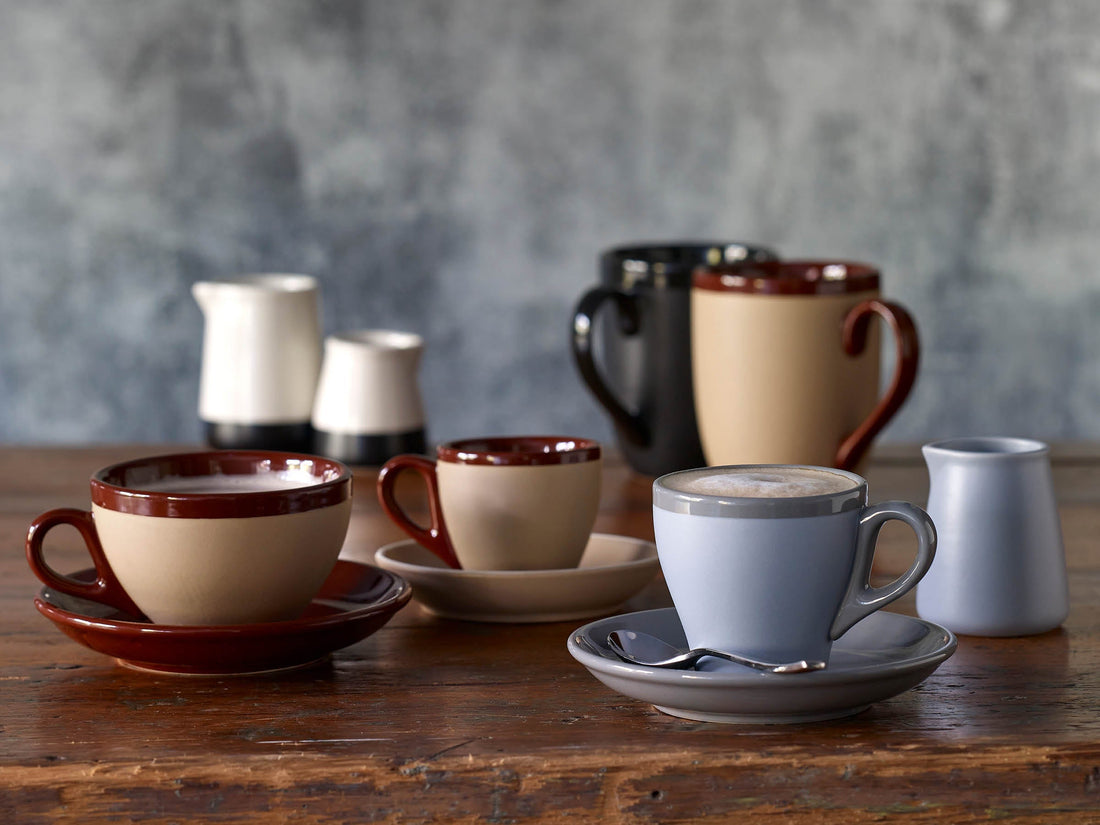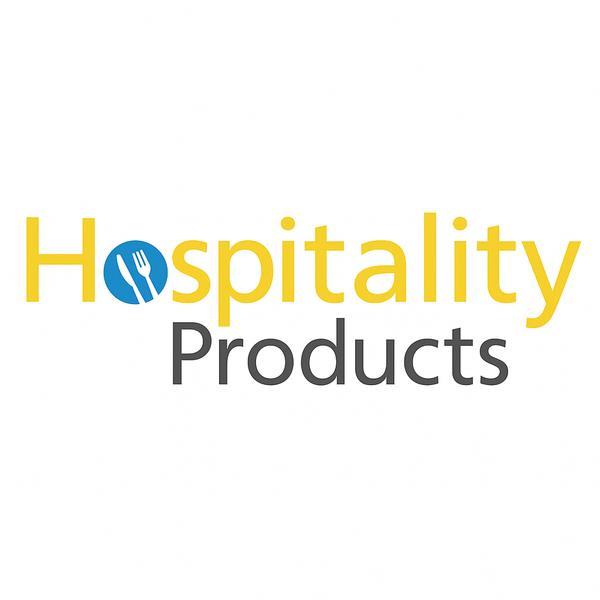
How to Set Up a Café in Queensland: A Step-by-Step Guide
If you're serious about starting your own café, one of the best first steps you can take is to work in one. Spending time behind the counter, learning how a busy service operates, and seeing what it takes to manage staff, suppliers, and customers can provide invaluable insights. It’s a chance to test your stamina, refine your expectations, and clarify whether this high-energy environment is the right fit for you.
Starting a café in Queensland is more than just a dream, it's a serious venture that, when done right, can become a thriving part of the local community. Whether you're an experienced operator or taking your first steps into the hospitality world, understanding the landscape is essential.
Brisbane alone boasts approximately 1,549 cafés, with the Gold Coast home to around 678. The majority, close to 70%, are independently owned, giving the industry a distinctly local flavour. These establishments typically operate for about six years on average, reflecting both the opportunities and challenges of hospitality life.
Cafés in Queensland often open early, around 5:30 or 6:00 am, catering to morning commuters and early risers. Most wrap up by 2:00 or 3:00 pm, aligning with the country’s vibrant breakfast and brunch culture. It’s an early-to-rise lifestyle that suits those with stamina and passion for fast-paced service.
What you’re getting into is a commitment, of time, energy, and focus. It’s a rewarding journey if you bring thoughtful planning, a distinct brand, and operational excellence to the table.
Starting from Scratch vs. Buying an Existing Café
One of the first strategic decisions you'll face is whether to start a café from the ground up or to purchase an existing one. Each path has its pros and cons.
Starting from scratch gives you complete creative control. You can design the layout, develop your brand identity, and craft a menu that reflects your vision from day one. But with that freedom comes the challenge of building a customer base from zero, not to mention navigating construction, council approvals, and fit-out logistics.
On the other hand, buying an established café may provide immediate cash flow, a known location, and loyal regulars. It can also mean inheriting trained staff and an existing supplier network. But due diligence is key, understand the business’s financials, lease terms, and the real reason it’s being sold.
If you're exploring the buy route, business brokers like LINK Business, BSale, and BusinessesForSale.com regularly list cafés for sale across Brisbane and the Gold Coast.
Choosing Your Business Structure
The first big decision? Your business structure. Many small café owners start out as sole traders, but it’s worth exploring whether a company or partnership setup better suits your long-term goals. You’ll need to register your business name with ASIC and apply for an ABN. These are relatively straightforward steps, but don’t underestimate their importance, they’re the legal foundations of your venture.
Register for an ABN
Register a business name with ASIC
Finding the Right Location
Finding the right location is both an art and a science. You’ll want somewhere with foot traffic and the right demographic, but it also has to meet zoning requirements. Councils like Brisbane City and the Gold Coast have clear guidelines, Mixed Use or Centre zones are generally café-friendly, but it’s best to confirm specifics before you sign a lease. And when you do negotiate a lease, ensure the terms allow for the kind of renovations your concept might require.
Brisbane City Council City Plan
Gold Coast Planning Scheme
Understanding Licences and Permits
Licensing is next, and it's where things can get complex. Every food business in Queensland needs a food business licence, issued by the local council. You’ll also need to appoint a certified Food Safety Supervisor, especially if you’re handling potentially hazardous food. Depending on your location and the extent of your fit-out, you might need development approval or building permits too. Local councils usually provide detailed checklists to help you tick every box.
Food Business Licensing – Redland Council Example
Queensland Food Business Regulations
Designing and Fitting Out Your Space
Designing your space is where your vision really comes to life. Think about workflow as much as aesthetics. A beautiful café is important, but it also needs to function efficiently during a morning rush. Invest in commercial-grade equipment from the outset, it’s tempting to cut corners here, but quality equipment will pay off in performance and longevity.
When choosing your crockery and cutlery, consider how well the pieces reflect your brand and how they perform in high-turnover service. The right tableware enhances not just presentation but also the tactile experience of the guest. Consider durability, stackability, dishwasher resilience, and how well the items pair with your menu style. Mismatched or poor-quality pieces can detract from even the best food.
Hospitality Products offers a curated selection of commercial-grade crockery, cutlery, and tabletop solutions specifically designed for busy café environments. From minimalist modern lines to more rustic or artisanal finishes, they help you build a cohesive tabletop identity that’s both practical and aesthetically refined.
Also, don’t overlook the utility and style of mobile service elements like food and beverage trolleys. They can help streamline service in larger venues or add a sense of theatre to your floor service. Wagen Australia supplies a range of high-quality trolleys tailored to hospitality venues.
If you’re looking for professional help to bring your vision to life, experienced café design firms like Guru Projects, Biasol, and Studio Y specialise in interiors for cafés, restaurants, and boutique hospitality spaces across Australia.
When choosing your crockery and cutlery, consider how well the pieces reflect your brand and how they perform in high-turnover service. The right tableware enhances not just presentation but also the tactile experience of the guest. Consider durability, stackability, dishwasher resilience, and how well the items pair with your menu style. Mismatched or poor-quality pieces can detract from even the best food.
Hospitality Products offers a curated selection of commercial-grade crockery, cutlery, and tabletop solutions specifically designed for busy café environments. From minimalist modern lines to more rustic or artisanal finishes, they help you build a cohesive tabletop identity that’s both practical and aesthetically refined.
Design and Fit-Out Guidelines – Queensland Health
Design and Fit-Out Guide – Brisbane Council
Hiring and Training Your Team
As for your team, take your time hiring. A great barista or a warm front-of-house team member can be the soul of your business. You'll need to decide whether to employ staff on a casual or permanent basis—each option has implications for rostering flexibility, staff retention, and cost. Casuals may offer more flexibility and lower overheads in the short term, but permanent staff can deliver greater consistency and long-term loyalty.
Many café operators also consider hiring foreign travellers, such as those on working holiday visas. While this can be a valuable source of short-term labour, it’s essential to understand and comply with all employment laws. Ensure these workers have valid work rights and are paid according to the correct hospitality award.
In Australia, the Fair Work Ombudsman regulates employment conditions, including minimum wage, penalty rates, breaks, and leave entitlements. The relevant framework for most café staff is the Hospitality Industry (General) Award [MA000009], which outlines pay rates and conditions for both casual and permanent employees.
Clear onboarding, accurate record keeping, and regular communication will help ensure you stay compliant and create a positive workplace culture.
Food Safety Supervisor Training – QLD Guide
Fair Work Ombudsman – Hospitality Industry Award
Food Safety Supervisor Training – QLD Guide
Crafting Your Menu and Building Supplier Relationships
Then there’s your menu. Create something distinctive but manageable. Think about your kitchen’s capabilities and your customers’ preferences. A smart approach is to focus on a core set of ingredients that can be repurposed across multiple dishes. This not only streamlines ordering and preparation but also helps reduce food wastage—an ongoing challenge for many cafés.
For example, ingredients like eggs, spinach, and sourdough can feature across breakfast plates, wraps, and even baked goods. A lean, versatile pantry lets you offer variety while maintaining efficiency.
Once your concept and core offering are in place, start building relationships with local suppliers. Fresh, reliable ingredients are the backbone of every successful café. Create something distinctive but manageable. Think about your kitchen’s capabilities and your customers’ preferences. Once that’s in place, start building relationships with local suppliers. Fresh, reliable ingredients are the backbone of every successful café.
For dry goods, fresh produce, and packaged foods, leading distributors in Queensland include:
Bidfood – a major supplier of foodservice ingredients and kitchen essentials with branches across Brisbane and the Gold Coast.
PFD Food Services – offering a wide range of wholesale foods, including frozen, chilled, and dry items.
Metcash Foodservice – a go-to for independent venues sourcing branded and private label products.
Quality Food Services – a boutique wholesaler focused on premium and specialty food brands, ideal for cafés targeting discerning clientele.
Establishing strong relationships with these distributors can ensure consistent supply, negotiated pricing, and product flexibility as your menu evolves. Create something distinctive but manageable. Think about your kitchen’s capabilities and your customers’ preferences. Once that’s in place, start building relationships with local suppliers. Fresh, reliable ingredients are the backbone of every successful café.
Developing a Marketing Plan
Marketing can’t be an afterthought. From branding to your website to local social media, make sure your café is discoverable. A soft launch is a smart move, it gives you a chance to test operations and gather early feedback without the pressure of a grand opening.
Launching Your Café
Launching a café is demanding, but when done with care and clarity, it’s one of the most rewarding hospitality ventures you can undertake. For those sourcing commercial-grade equipment or looking for reliable local suppliers, Hospitality Products is here to support you every step of the way.
Need a head start? Explore our café starter kits or connect with our team for tailored setup advice.
